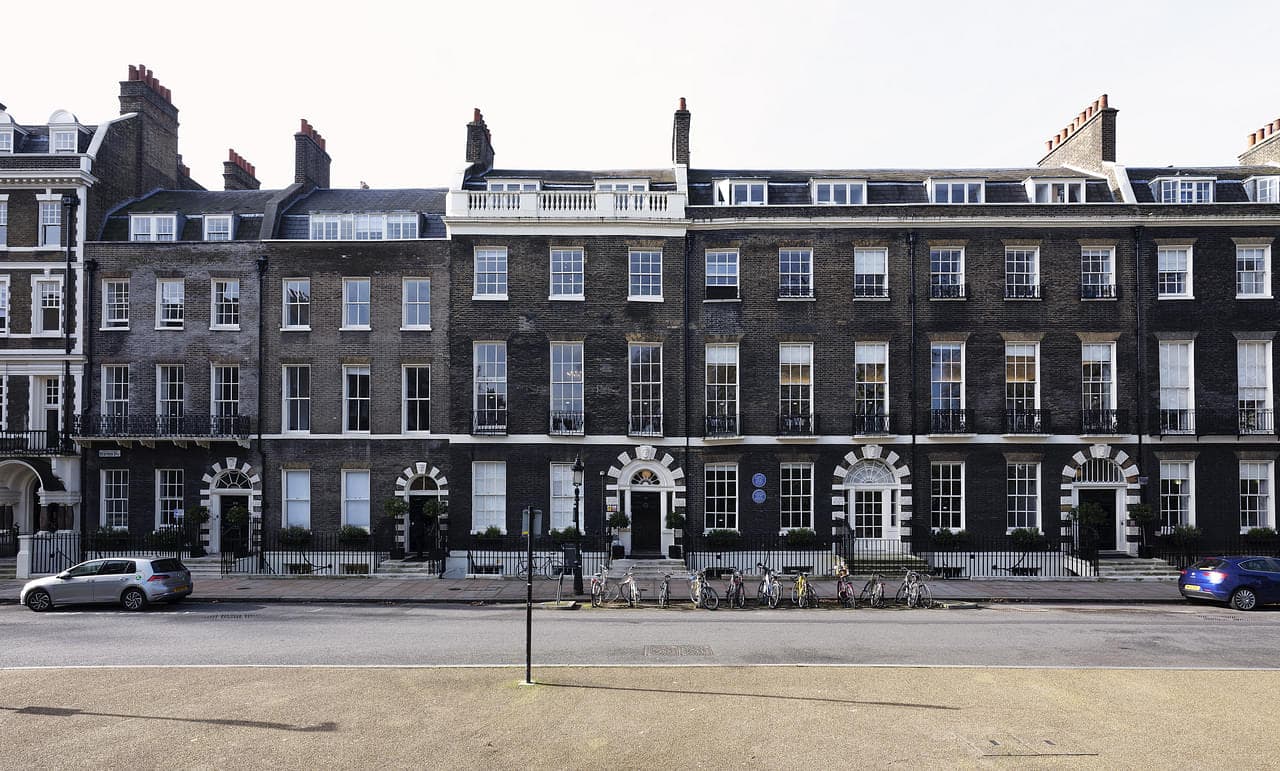PROGRAMME STRUCTURE
The programme takes place over 12 months, with six courses to be taken during Terms 1 and 2, after which students will then attend a Thesis Research Seminar and produce a written thesis in Terms 3 and 4.
Seminars, workshops, reading and writing sessions and open debates offer a range of approaches to expanding and reinterpreting disciplinary knowledge within a broad historical, political and cultural arena. Collaborations with design units, participation in juries and architectural trips throughout the year enable students to engage with design speculation and specific projects.
Other courses outside of HCT can also contribute to the submission requirements for the programme (these must be approved by the Programme Head). HCT also provides research facilities and supervision (with the assistance of specialist advisers) to research degree candidates registered under the AA’s joint PhD programme, a cross-disciplinary initiative supported by all the Taught Postgraduate programmes.
TERM 1
Title: Histories of Modernity: Questioning the Canon
Tutor: Marina Lathouri
This seminar series examines the construction of the histories of modern architecture and the city. Formal considerations, social ideals and economic constraints, ideologies and political upheavals, material technologies and cultural impositions are considered. The course interrogates an identifiably modernist vocabulary and discourse that was carefully crafted and transmitted to express specific conceptual and visual organisations of the spatial and the social, but which was dismantled in the years immediately prior to 1968.
Title: Historical Evidence and Representation: Architecture Photography
Tutor: Tim Benton
The aim of the course is to deepen students’ understanding of the role of photography in representing and shaping the development of architecture. Discussions will address genres from amateur snapshots by well-known architects to the work of professional architectural photographers and ‘art’ photographers such as László Moholy-Nagy and Lucien Hervé; comparisons with film; the replacement of woodcuts and watercolour renderings by photographs in architectural journals; ‘New Photography’ and architecture in the 1920s; and post-war American photographers on the West coast.
Title: Writing Objects and Non-Objects
Tutor: Georgios Tsagdis
This course queries the object, and how the world becomes objective, by examining how this notion is recast in the 20th and 21st century, retracing the horizon of enquiry and opening a space of unprecedented creativity. In a series of close readings, the course engages directly with primary texts; Martin Heidegger’s ‘tools’, Walter Benjamin’s ‘works of art’, Jacques Derrida’s ‘traces’, Gilles Deleuze’s ‘becomings’, Michel Serres’ ‘quasi-objects’, Bruno Latour’s ‘networks’, Timothy Morton’s ‘hyperobjects’ and Jane Bennett’s ‘thing-power’ are the provisional foci around which this space articulates itself, the foci from which our writing of non-objects begins.
TERM 2
Title: Architecture Knowledge and Cultures
Tutor: Marina Lathouri
The course begins with a close examination of early architectural writings and how they describe the object of architecture and the city, tracing the historical formation of disciplinary knowledge. Particular attention is paid to the search for origins, language and the notion of the project in the 18th century; an investigation into the establishment of the first schools of architecture and architectural historiography in the 19th century; and shifting interpretations of space and history, critical theories, changing scales and modes of operation. The course highlights the historical terms necessary to understand the agency, technologies and formats of architecture.
Title: Climate Peace
Tutor: John Palmesino
The rise of the new climatic regime and the magnitude of the techno-sphere baffle architecture; from within, it appears as the result of multiple projects, designs, actions and processes of humans, within the remit of control and capacity to act. This seminar investigates specific conditions wherein this inversion of agency affects narratives of modernisation and the appreciation for the deep interconnectivity between architectural development, rapid urbanisation and the human impact on the Earth System.
Title: HCT Debates
Tutors: HCT Staff with guest speakers
The HCT Debates are a venue for exchange of ideas and arguments. Guest speakers are invited to attend, providing multiple voices to make possible the process of thinking in common, which is by definition a pedagogical practice different from the seminar or the lecture. These sessions are open to the School Community.
TERM 3
Title: Thesis Research Seminar
Tutors: Marina Lathouri with guest critics
The Thesis is the largest and most significant component of students’ work within the overall MA structure. The choice of topic, the organisation of research and the development of the central argument are all addressed within this seminar. Within each individual research project, emphasis is placed both on critical method and historical analysis. Within this process a set of resources and questions regarding the ‘production’ of history are solidified and shared amongst the group of students. This common knowledge and collection of references allows students to define and test their individual ideas, methodologies and ambitions.
Title: Critical Writing Workshop
Tutors: Marina Lathouri with guest critics
The workshop, which is the starting point for the Thesis Research Seminar, is composed of two elements: the first is a series of analytical readings, conceived as references, both for the conceptual framework within which they are developed and for the literary and stylistic qualities. The second is a series of short writing exercises, edited and formatted with the intention of creating a small collection of publications.
TERM 4
In Term 4, students are asked to develop and finalise the 15,000-word thesis independently. During the summer term, formal presentations to internal and external critics, together with individual tutorials, provide the students with support and guidance to refine their writing and ideas. The presentation of the completed thesis to HCT staff and guests, as well as new students to the programme, provides a formal conclusion to – and celebration of – the work of the year.

